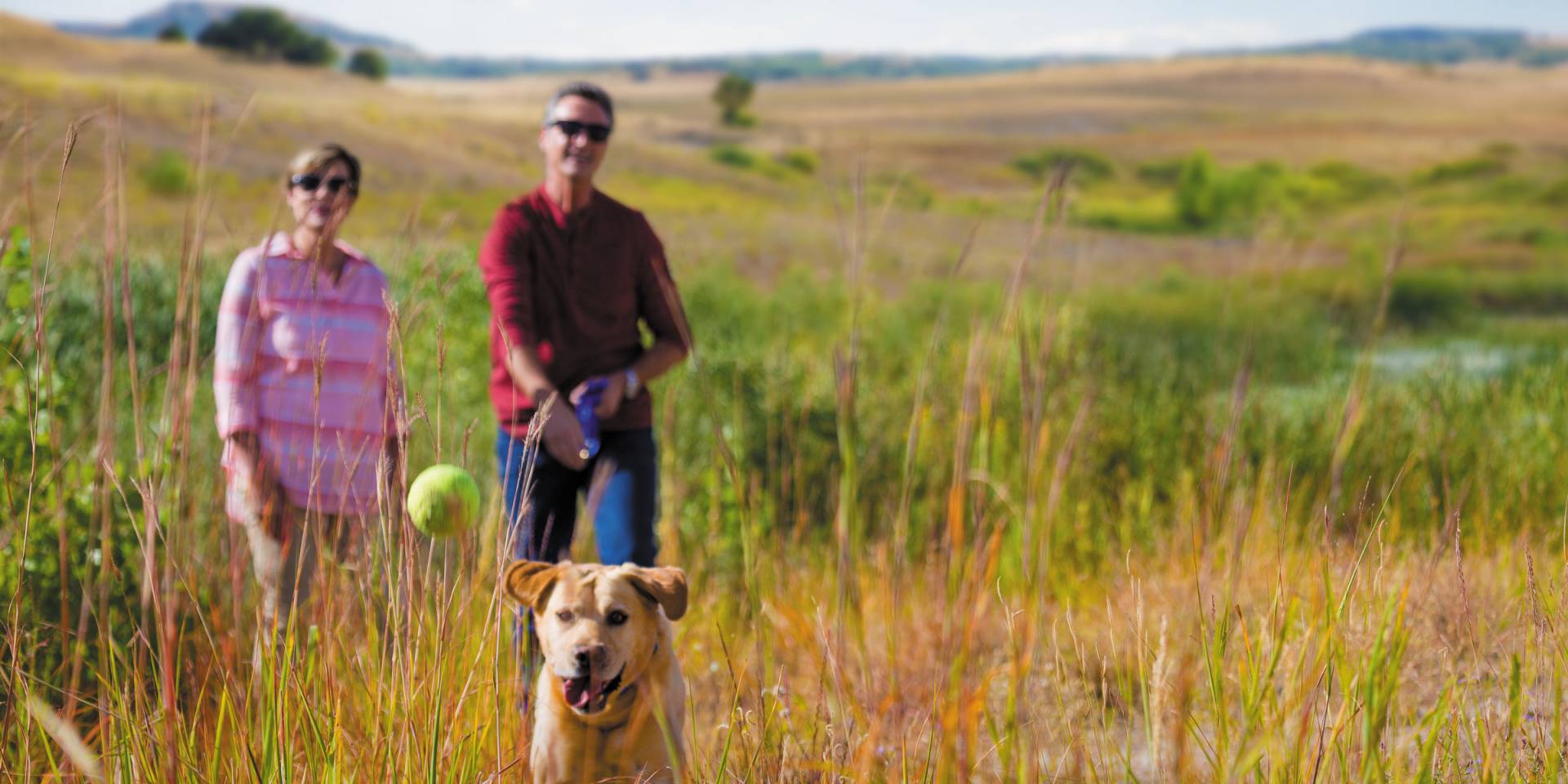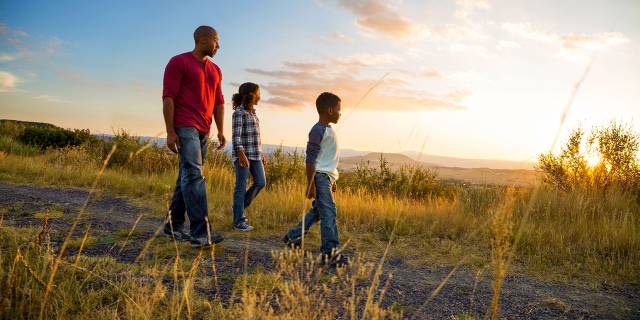The Benefits of Nature

Walking in nature is different than walking down a city street. You know it’s true. The sound of leaves rustling and birds chirping has an entirely different effect on your psyche than horns honking and tires squealing.
And science is regularly proving the point.
 A grad student at Stanford studying the psychological effects of urban living, found that volunteers who walked through the lush, green, tree-lined parts of the campus were more attentive and happier afterward than volunteers who walked near heavy traffic.
A grad student at Stanford studying the psychological effects of urban living, found that volunteers who walked through the lush, green, tree-lined parts of the campus were more attentive and happier afterward than volunteers who walked near heavy traffic.
The study examined blood flow to parts of the brain that correlate with brooding (i.e., bad attitude/mood), and turned up enough evidence to “strongly suggest that getting out into natural environments” could be an easy and almost immediate cure for feeling gloomy.
Researchers all over the world are looking into the “medicalization of nature.” In Japan, a researcher sent 84 volunteers to stroll in forests, while the same number of people walked around city centers. The forest-walkers showed a 16 percent decrease in the stress hormone cortisol, a 2 percent drop in blood pressure and a 4 percent drop in heart rate!
Children and the Benefits of Nature
The evidence should encourage us to ensure that our children spend more time in it.
Children who play regularly in natural environments have more positive feelings about each other, show more advanced motor skills, are more diverse in imaginative and creative play, and have improved reasoning and observational skills.
Just this month a book called Glow Kids: How Screen Addiction is Hijacking Our Kids was released. Written by an addiction expert, Dr. Nicholas Kardaras, the book talks about how compulsively using technology can neurologically damage the developing brain of a child the same way that drug addiction can.
The jury is in: kids need more green time, and less digital time!
Some ideas for disconnecting kids from digital devices and re-connecting them with nature can be found at the National Wildlife Federation and the Nature Conservancy. And while it’s usually easy to get toddlers and younger children outside to play, teens are more of a challenge. One recent Nature Conservancy poll found that only about 10 percent of American teens spend time outside every day.
LIVESCIENCE has some great suggestions for getting older kids outside that include adding their friends to the mix, making up fun outdoor family activities and setting great examples. You don’t have to be an Olympic athlete to be a healthy role model, just spend more time outside than inside glued to your smartphone!
Crystal Valley’s Outdoor Attitude
Crystal Valley’s nearness to nature was no accident. We created this community with purposeful open space near miles of trails and more than 20 developed parks so residents could experience naturally soothing environments. If you don’t live in Crystal Valley yet, check out the variety of new homes available from Richmond American Homes, and plan on touring the models soon.
Nature is easy to access year-round in our community and since it’s practically guaranteed to boost your mood and improve your health, get into it!


